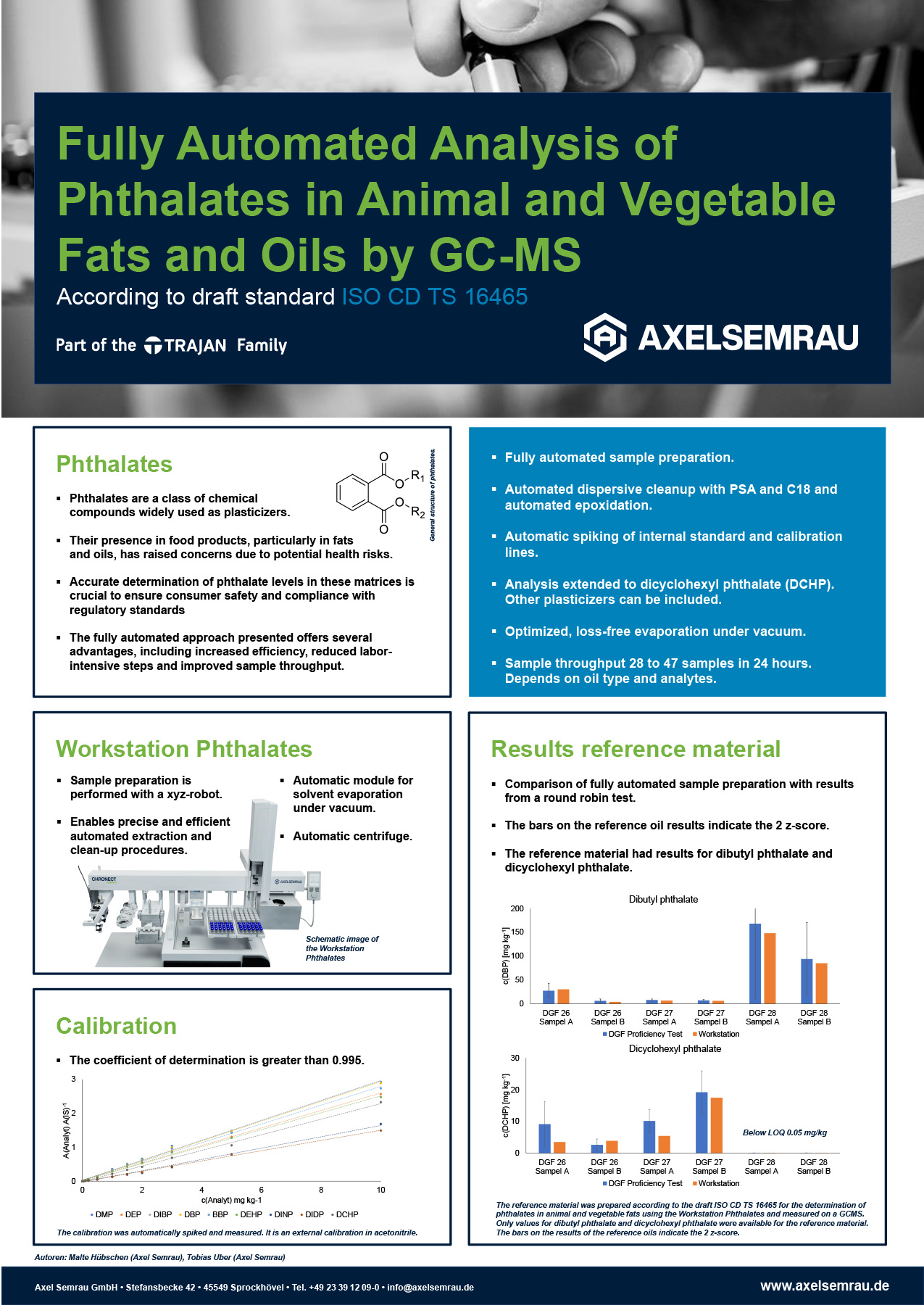Phthalates are a class of chemical compounds widely used as plasticizers. Their presence in food products, particularly in fats and oils, has raised concerns due to potential health risks. Accurate determination of phthalate levels in these matrices is crucial to ensure consumer safety and compliance with regulatory standards. This poster presents a novel approach for the fully automated sample preparation and analysis of phthalates in animal and vegetable fats with gas chromatography-mass spectrometry (GC-MS).
The analytical workflow follows the draft standard ISO CD TS 16465 for the determination of phthalates. Sample preparation is performed using a xyz-robot, which enables precise and efficient automated extraction and clean-up procedures. The system ensures consistent and reproducible sample handling, minimizing human error and increasing overall analytical throughput. For crude oils, an additional fully automated epoxidation step is incorporated to remove interfering olefinic substances, improving the selectivity and accuracy of phthalate determination. This feature allows the analysis of a wider range of samples, including those with complex matrices. The following phthalates are targeted in this study: dimethyl phthalate (DMP), diethyl phthalate (DEP), diisobutyl phthalate (DiBP), dibutyl phthalate (DBP), benzylbutyl phthalate (BBP), di-2- ethylhexyl phthalate (DEHP), di-isononyl phthalate (DINP) and di-isodecyl phthalate (DiDP). These phthalates are commonly found in various consumer products and food.
Validation experiments were performed to assess the performance of the fully automated method. Parameters such as linearity, precision, accuracy, limit of detection and limit of quantification were evaluated to ensure reliable and robust results. The method showed excellent analytical performance and met the requirements of the ISO guidelines for the determination of phthalates in fats and oils. The fully automated approach presented offers several advantages, including increased efficiency, reduced labor-intensive steps and improved sample throughput, making it suitable for routine analysis in quality control laboratories. Reliable quantification of phthalates in animal and vegetable fats and oils provides valuable information for regulatory compliance and food safety assessment. Overall, this poster highlights the development and validation of a fully automated method for the analysis of phthalates in fats and oils and demonstrates its potential as a valuable tool for food industry professionals and regulatory authorities involved in ensuring consumer safety and product quality.
